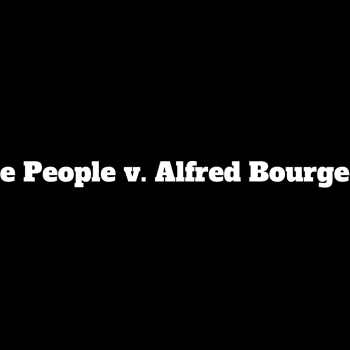Editors' Note: This article is part of the Patheos Public Square on the March from Selma: Fifty Years Later. Read other perspectives here.
I'm no expert on the challenges faced by racial minorities in America, but fifty years after the March from Selma I know enough to say this: "Not good enough."
If anything, as I repeatedly watch unarmed black men get shot dead by law enforcement officers, I probably underestimate the degree of racial parity in our country today. I would be happy to be proven wrong. If there are any people of color out there who would like to make the case the U.S. should get any more than a "D" — or maybe a "C" — on our Race Relations Report Card, I would love to hear from them.
I have great hope the next fifty years will see improvements in racial parity and justice that will make the fifty years since the March from Selma look like a period of comparative stasis. The primary reason for my hope is this: climate change is forcing us to reckon with the truth of interdependence.
Despite the dire challenges we are facing, the distress signals being sent by our planet are a wonderful opportunity. More and more of us are realizing it's all connected. The greed, arrogance, fear, and ignorance that result in racism is the same as that which leads to environmental degradation, injustice, oppression, poverty, climate change, and (insert your ugly scenario here). We're starting to wake up to the fact that we're going about things all wrong. We've been operating as if each individual, each corporation, and each nation can continue to act primarily in their own self-interest, without consideration for others, and end up happy and well, but this just isn't true.
The delusion of Individualism-Above-All champions competition for resources, power, survival, and reproduction. Those who win deserve their advantage. Those who lose? Well, survival of the fittest, you know?
In the system of social Darwinism that fits so well with unregulated (but subsidized) capitalism, concern for the well-being of others is a value, a luxury, something optional we adopt because we're nice or righteous people. Concern about racism if we're not people of color is noble. Activism for environmental conservation is something we might do if we resonate with that particular issue, like a hobby. Our neighbor might be "into" helping the homeless, while our chosen cause might be better working conditions for migrant farm laborers. Many of us don't have the time or resources to devote to a special cause, but that's okay; we may not hike, play music, or cook gourmet meals either. It's all a matter of personal choice and taste.
As long as we see concern for the well-being of others as admirable but optional, our progress in racial parity and all other important issues will be incremental. In the case of race, we may speak up when a gross injustice gets called to our attention, but the wide gap between income levels and opportunities for white people versus African-Americans? That's pretty complicated — what can we do? If a solution requires too much of us (that is, more time and money than we might give to a hobby), we're probably not going to do anything.
Let's consider an alternative view of the world, one that our planet's climate change is inviting us to wake up to: The survival and well-being of everyone on this planet depends on the vitality and sustainability of the ecological, social, and economic systems of which we are only a small part — systems that include other human beings, other forms of life, other forms of matter, and processes much too complex to control. In short, we are all interdependent. Individuals, corporations, and nations cannot continue to act primarily in their own self-interest, without consideration for others, and end up happy and well. Eventually we will go down in flames together, or save ourselves together.
It may sound like I'm suggesting we stop relying on altruism and instead ask people to expand their idea of what constitutes self-interest. I don't think we need to consider this shift in view so negatively. Once we start looking around and see the struggles of others as being directly related to our own, we are informed and touched. My effort to help a neighbor put out a fire so it doesn't spread to my house quickly becomes a sincere effort to help my neighbor. His success becomes my success. I rejoice in his relief, and feel compassion for his loss. The line between self and other becomes blurred.
In the case of racism, the struggles of people of color coupled with the altruistic efforts of white people have successfully outlawed the most egregious and overt acts of racial discrimination and violence. It's going to take something more to achieve true racial parity and justice. We need to see the well-being of all members of our society as essential to its vitality and sustainability. We need to do whatever it takes to create a society in which people feel valued, respected, and excited about their opportunities regardless of the color of their skin or their cultural background.




